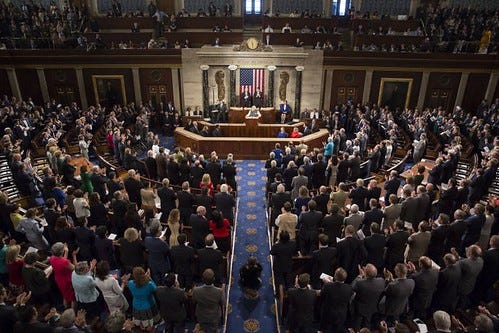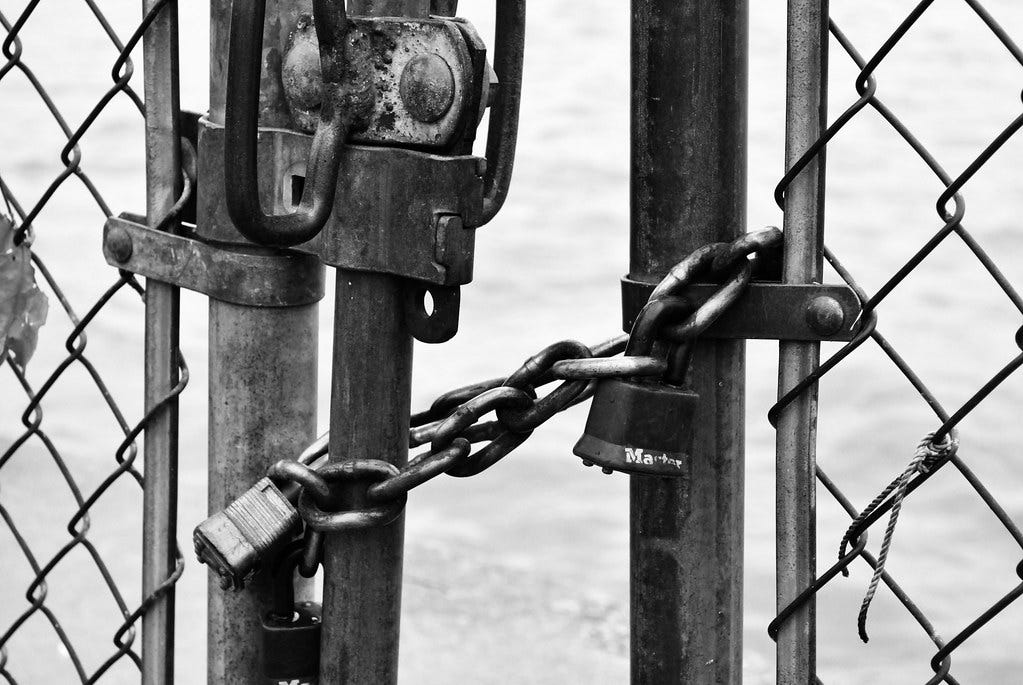Tim Nesbitt: What the “vote your conscience” meme tells us about the need to change our party power structures
We need political parties not as enforcers of orthodoxies, but as advocates of values, open to argument and respectful of dissent.
Tim served as Chief of Staff for Gov. Kulongoski. A former union leader, he lives near Independence and oversees a specialty apple orchard.

It’s hard not to be cynical when we hear lawmakers talk about voting their conscience, especially after watching the partisan posturing of some Republican members of Congress during the second impeachment of Donald Trump. But I’m beginning to think that some votes really are votes of conscience. And that, at long last, these conscience votes can help challenge party hierarchies and the outsized control of party caucuses in Congress and state legislatures.
Let’s start with an exchange I witnessed a decade ago at a legislator’s town hall meeting in Portland, which illustrates an all-too-common way of dissembling about voting one’s conscience.
Legislator: “On this issue, leadership told us we are free to vote our conscience.”
Constituent: “When do you not vote your conscience?”
As someone who has never been comfortable watching how political parties “whip” their members and “lock up” on issues in the legislature, I admit I enjoyed seeing this legislator try to talk his way out of a self-inflicted challenge to his integrity. But this was not a difficult crowd. His constituents stared blankly at what I thought was a lame attempt to answer the primary question before the legislator quickly moved on to discussing the issue at hand.
That issue, as I recall, was a tax vote – hardly a matter of conscience so much as a matter of judgment. This “free to vote your conscience” message was code for “free to go against your party’s leaders.”
So, what if that exchange in Portland had gone as follows?
Legislator: “On this issue, leadership told us we’re free to trust our own judgment and vote against our caucus.”
Constituent: “When do you not trust your own judgment? And how do you decide when to vote against your caucus leaders?”
That would have been a better conversation starter, which could have fostered a more honest discussion of the tensions that arise in a legislative assembly.
If you’re a legislator, you’re bound to experience conflicts between the views of your party or your constituents and your own better judgment. Most of these conflicts aren’t moral ones; they’re epistemic and practical ones. If you come to elected office with some humility about what you have to learn from your party leaders and a commitment to listening to your constituents, you will defer at times to the judgment of others. Not every hard vote is a matter of conscience. More often it’s a matter of fact finding, reason, and judgment.
But that’s textbook theorizing on my part. It’s not what we’ve heard in these votes-of-conscience discussions, because they haven’t been about individual agency but party power. When party leaders tell their members they’re free to vote their conscience, they are really issuing exemptions from outcomes dictated by their party’s donors and supporters. This kind of thing is an insider’s game, not one that lends itself to an honest discussion among average voters in a town hall setting.
But the events of January 6 and the second impeachment of Donald Trump cast the vote-your-conscience meme in a sharper light for a nationwide audience. This time the vote really was a matter of conscience. Republican leaders Kevin McCarthy and Mitch McConnell used those very words, freeing their members “to vote your conscience.” There was no evident pushback from any mainstream commentator, asking, “When do you not?” This was, clearly, a matter of individual responsibility and accountability to one’s oath of office.
When it finally came time for consulting one’s conscience, ten House Republicans voted for impeachment; then seven Senate Republicans voted for conviction. Would those votes have been cast without the dispensations of McCarthy and McConnell? Some surely would have, beginning with those of Mitt Romney, Lisa Murkowski, and Ben Sasse. I was also surprised to see some Republican senators, like Bill Cassidy, join the vote to convict based on what they told us was their response to the evidence presented.
In the end, I think McCarthy and McConnell chose to loosen their lock on their caucuses because the whole country was watching, the future of their party’s appeal to centrist voters was at stake and they knew there were some members in their caucuses who would, no matter what, go their own way.
So, despite the Pyrrhic acquittal for Trump, my take-away from this process is that we saw some fracturing of power in a party that has thrived on lock-step discipline and, in the words of Sasse, “the weird worship of one dude.” That’s a good thing.
Francis Fukuyama, author and political scientist, has observed that the ever-tightening gridlock in our political institutions can be traced to the organized entities that wield veto power within our political parties. When party leaders enforce those vetoes within their caucuses, they not only “lock up” their members, but also close off the paths to deliberation and compromise.
Democracy seizes up in a two-party system when each side defaults to locking arms to defeat the other. Problems fester. Tough decisions are deferred. Challenges remain unmet. And party leaders who sustain their power by opposing “the other side” become yet another obstacle to the better functioning of our democracy.
Many of the contributors to this site have focused on ways to temper the polarization of our politics by rebuilding civility and expanding shared projects of improvement in our communities. That’s an important bottom up approach. But I think we need change at the top, which requires changes in how we conduct elections. It will be difficult to sustain a course correction for our democracy if we don’t change how parties compete for power and control the operating systems of our legislative assemblies.

Note that three of the Republican House members who voted for impeachment and the one Republican Senator (Murkowski) who did so while facing reelection in 2022 come from states with open primaries, and, in the case of Alaska, ranked choice voting. This suggests that the path to loosen party strangleholds on the legislative process will be easier if we loosen party control of our electoral systems.
To that end, we should consider reforms like open primaries, ranked choice voting, and campaign finance controls as integral to the project of building a better democracy. We need political parties not as enforcers of orthodoxies, but as advocates of values, open to argument and respectful of dissent.
***************************************
Send feedback to Tim:
@TimNesbittOR
Keep the conversation going:
Facebook (facebook.com/oregonway)
Twitter (@the_oregon_way)
Check out our podcast:



